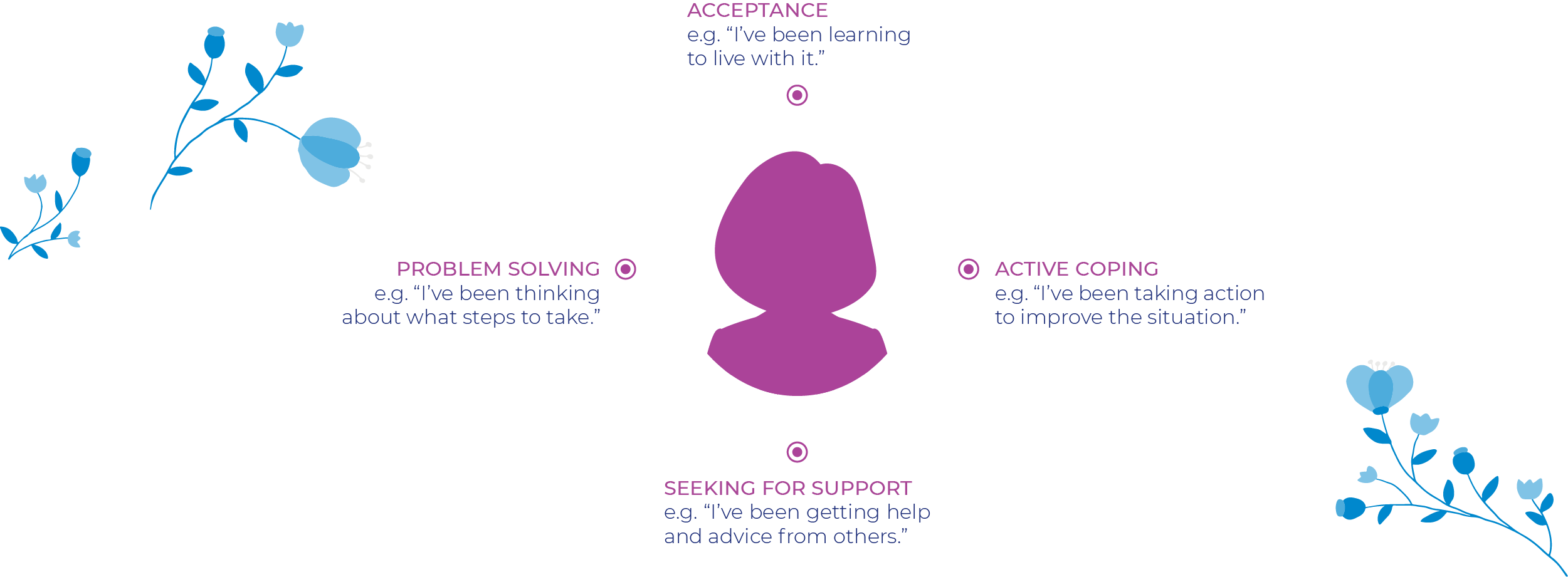MANAGING YOUR EMOTIONS
Being diagnosed with breast cancer may come as a shock to you, and there is no right or wrong way to deal with your emotions.1 It is normal to experience varying emotions, such as anger, disbelief, and sadness.1 Sometimes you may feel more positive and other times you may feel low.1 Everyone reacts in their own way.2
Learning about your cancer can be overwhelming, as you may encounter terminologies that you don’t fully understand, and your normal routine is disrupted with consultation and scans.3 You may also feel frightened, and wonder if you will live, or feel lonely with no one to talk about your feelings with.3 Taking control by seeking information about your disease and asking your doctor questions may help you feel less overwhelmed.3
PROACTIVE STRATEGIES FOR REGULATING YOUR EMOTIONS
To cope with your feelings, you may consider proactive strategies to regulate your emotions.4 Research has shown that emotional regulation is associated with patients’ ability to adapt, and improve their well-being.4 Positive strategies for regulating your emotions include:4

However, by distracting yourself to avoid thinking about your diagnosis, being in denial or even committing to substance abuse will not help you feel better about your emotions.4 These may be associated with more emotional distress, anxiety, and poorer emotional well-being.4 If you find yourself using these to cope, you may want to speak to your doctor who can offer support.
Many people with cancer may feel guilty and blame themselves for burdening their loved ones.3 Please remember that having cancer is not your fault and you should not blame yourself for any lifestyle choices that you think could have led to your cancer.3 If you experience such feelings, speaking to a counsellor or a support group may help you work through these emotions.3
You might find it easier to handle unsettling emotions after you learn about your treatment plan.1 You should also discuss with your doctor regarding any worries or concerns you may have, to ensure these are clarified before beginning treatment.1
References
- Breast Cancer Now (October 2021). Coping with breast cancer emotionally. Retrieved from
https://breastcancernow.org/information-support/facing-breast-cancer/living-beyond-breast-cancer/life-after-breast-cancer-treatment/coping-breast-cancer-emotionally. Accessed 22 March, 2022. - Cancer Research UK (June 2020). Coping with breast cancer. Retrieved from
https://www.cancerresearchuk.org/about-cancer/breast-cancer/living-with/coping.Accessed 21 March, 2022. - National Cancer Institute (November 2021). Feelings and Cancer. Retrieved from
https://www.cancer.gov/about-cancer/coping/feelings. Accessed 21 March, 2022. - Conley CC et al. (2016) Emotions and Emotion Regulation in Breast Cancer Survivorship. Healthcare (Basel) 4(3):56.
Disclaimer
This health information is provided for reference only and is not intended to replace discussions with a healthcare provider.
All decisions regarding patient care must be made with healthcare provider.
